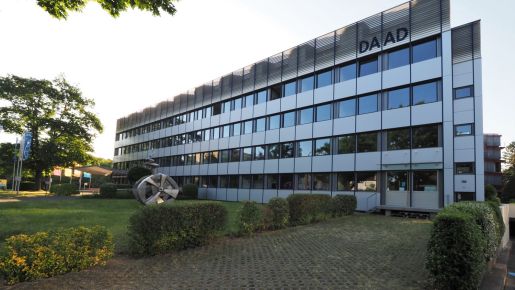Concern for Afghanistan
DAAD member institutions
German higher education institutions are monitoring the current developments in Afghanistan with great concern. At a virtual meeting held on Monday (6 September), the member institutions of the German Academic Exchange Service (DAAD) endorsed the DAAD’s efforts to expand funding programmes for Afghan researchers and students.

The DAAD had invited the members of the German higher education institutions’ management, who are in charge of international affairs, for yet another biannual exchange meeting. More than 100 higher education institutions from across Germany took part in the virtual meeting. ‘Many of our member institutions are concerned about the situation in Afghanistan, as they hear about dramatic developments at the country’s higher education institutions. They also report about the concerns of Afghan students in Germany, who are worried for their families or about securing their residency status,’ said DAAD President Professor Dr Joybrato Mukherjee on the occasion of the meeting.
With regard to the dramatic developments in Afghanistan, the DAAD President thanked the Federal Foreign Office for the comprehensive cooperation in recent weeks. ‘After the end of the evacuation activities we are now ready to collaborate with our member institutions to expand or newly establish programmes and measures to ensure integration to Afghan researchers and students in the region and in Germany.’
He continued to say that in its role as a funding organisation for academic exchange, the DAAD continued to be by the side of the Afghan people, also following the regain of control by the Taliban. Last week he presented initial considerations to allow for support for Afghan students and researchers to be expanded in a timely manner. ‘One of our goals is to enable students and academics who are refugees to continue their studies or doctorates locally, for example in one of Afghanistan’s neighbouring countries. At the same time, we also need to maintain and further develop existing successful refugee programmes at German higher education institutions,’ Mukherjee explained. Reliable structures had been established here over the past five years, thanks to the great commitment of higher education institutions and student bodies. He continued saying that these structures could be used for integrating and training Afghan refugees, that the DAAD maintained close exchange with funding bodies in this context, and that the federal government displayed great openness for the issues at hand.
Outlook for the 2021/2022 winter semester
Apart from these worries for Afghan students and researchers, the DAAD member institutions are cautiously optimistic regarding the coming winter semester. The majority of institutions are planning to realise more classroom teaching. This is an important sign, especially for international students. In addition to this, the higher education institutions polled expect the number of international students starting higher education to stabilise. Around two thirds of respondents expect that at least half of the international students will travel to Germany in the winter semester. The DAAD had asked the member institutions about their expectations prior to the meeting.